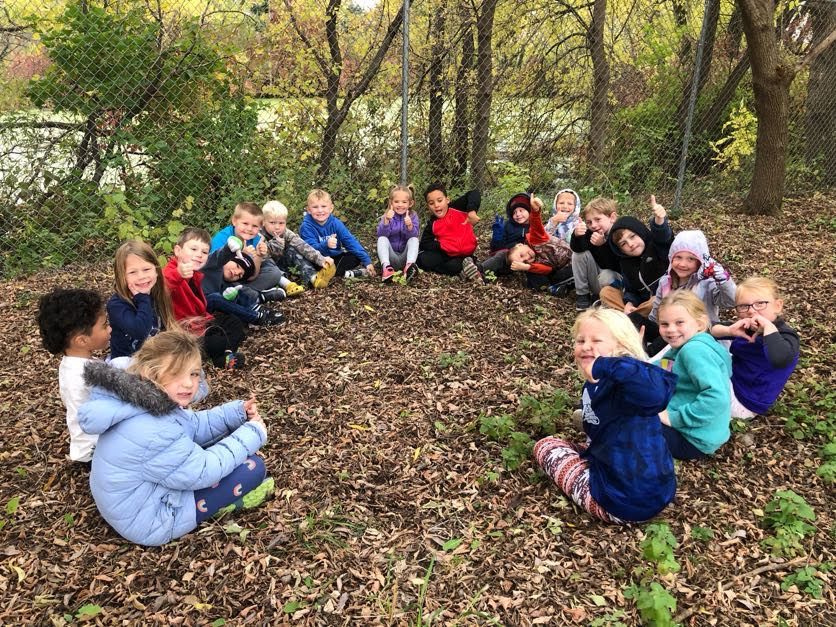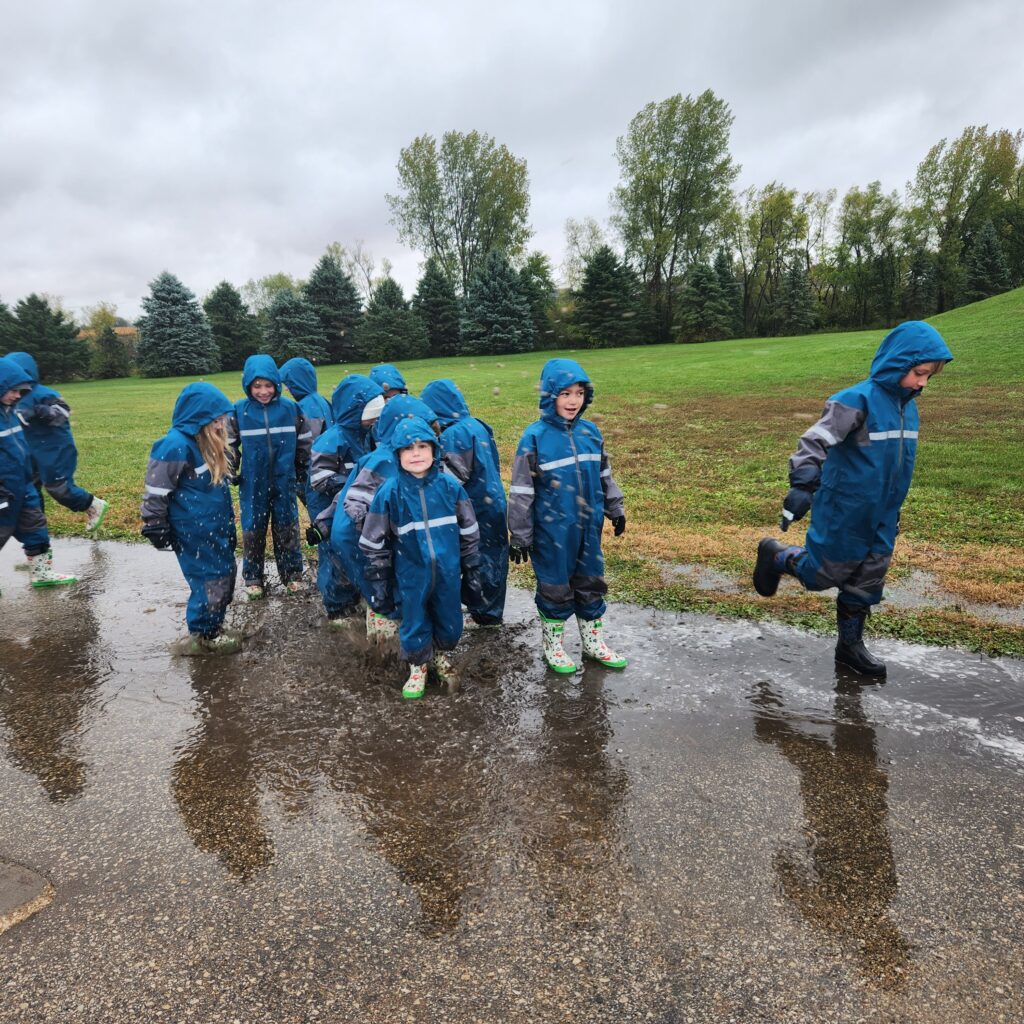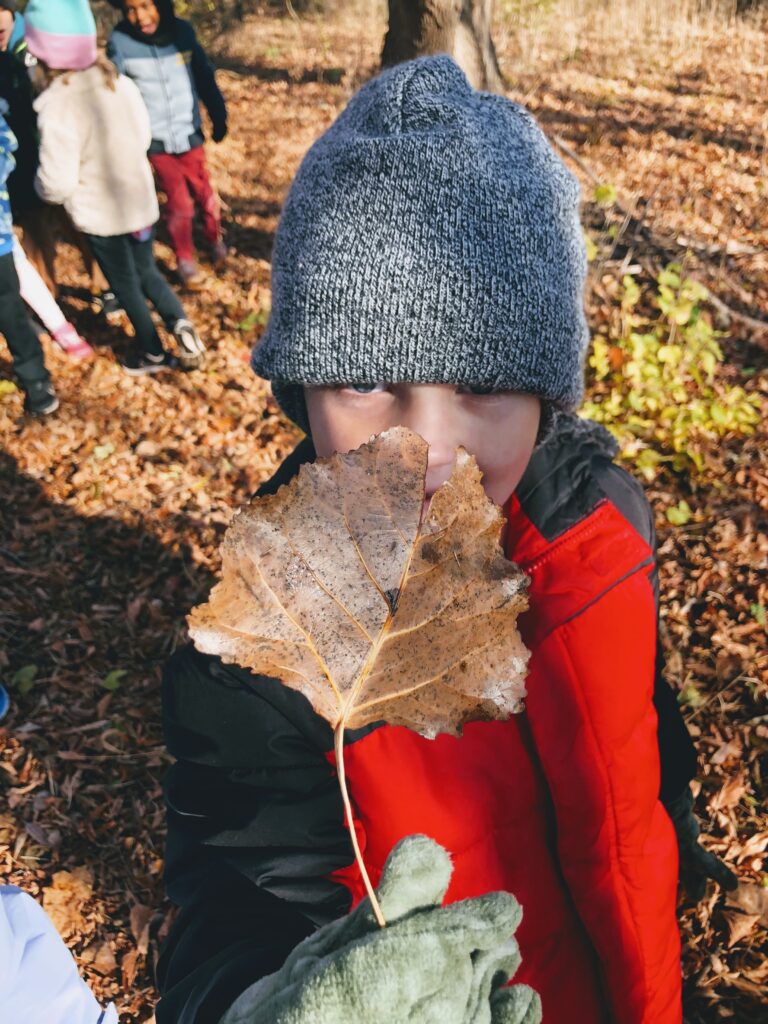Nature-Based kindergarten takes students out the class and into the woods

Kindergarten Students at Kasson-Mantorville Public Schools gather around during an outing near the school (Credit: Kelly Schmidt)
(ABC 6 News) – Kasson-Mantorville students immerse themselves in nature as part of the school’s Nature-Based Kindergarten Experience.
And now, the Minnesota Rural Education Association will honor this program at the Greater Education Summit.
Kasson-Mantorville kindergarten teachers Kelly Schmidt and Megan Melhouse lead their classes outdoors, near regardless of weather, to learn and play in nature.
According to the teachers, the school’s Nature-Based experience “builds resilience, confidence and learn respect by being part of nature,” allowing students to explore, learn and play with Mother Nature.
Everyday, the two teachers try to get their students outdoors. Yes, a lot of playing happens. But primarily, the teachers augment traditional lessons to nature. Instead of playing with colored shapes for a math lesson on patterns, students search for pinecones to study themselves.
“The benefits of nature-based learning are well documented and prove that growth is supported in all areas of a child’s development. Through this experience, students also develop a strong connection to nature, which promotes environmental stewardship,” said Schmidt.
According to Schmidt, she changes a “normal” lesson to incorporate the nature right outside the school. “We really truly believe getting outside and connecting with nature is the most important thing,” she said. “If we can get our littlest learners outside, then we can change the world.”
Wilderness Wednesdays have the students spending as much time as they can outside, rain or shine. The students prep themselves with rain coats and boots to explore the muddy outdoors.
Come winter, Schmidt and Melhouse will readjust, providing students with snowshoes to better enable their explorations.


Schmidt and Melhouse do not plan out every lesson. After all, certain events can’t be prepared for. Sometimes adjustments must be made to meet students’ needs or a particular opportunity presents itself.
Schmidt recalled one instance where, while taking her class sledding, students spotted a bald eagle circling above them. Immediately, she identified a learning opportunity.
Schmidt instructed her students to think up why the eagle might circle around the area. It spotted a small animal? Was hunting for baby bird food?
After a successful sledding expedition and plenty of theorizing, Schmidt and her class begun researching bald eagle behaviors to validate or correct the student’s claims.
The Minnesota Department of Education identifies that, while also fun, letting children learn in nature allows them to improve attention skills and reduce stress.
Additionally, the MDE notes that immersing children outdoors can develop social skills like empathy and compassion; MDE uses the example of building forts with friends and seeking shelter during the rain builds compassion and friendship skills.
The students don’t only experience lessons and class in nature. The little learners go and play around outside. After, they’ll bring in what items they find (feathers, rocks, plants) for them to study and learn about.
“I really believe in play and there’s so much learning to be done in play,” said Melhouse. “It’s an opportunity to let kids be kids.”
Megan Melhouse added, “I feel so blessed to have this experience as a teacher. All of the nature connections and experiences are so authentic and drive my instruction daily. Play and learning is intertwined in everything we do. Our students are engaged and excited about being at school and the extra outdoor[s] time.”
To learn more about Childhood Nature Studies, the University of Minnesota: Duluth has a bachelor’s program available.